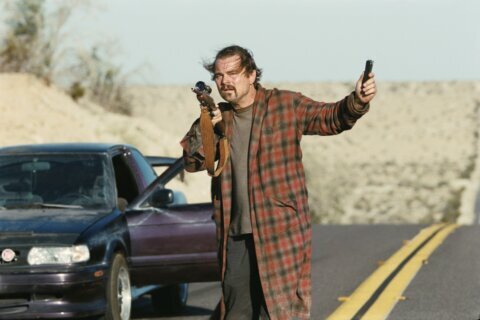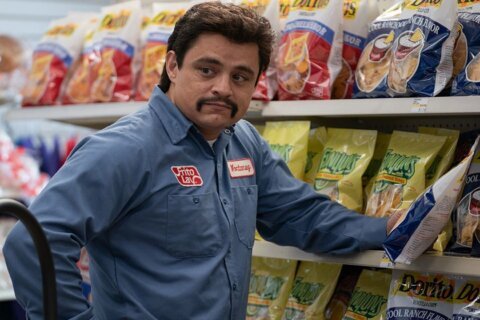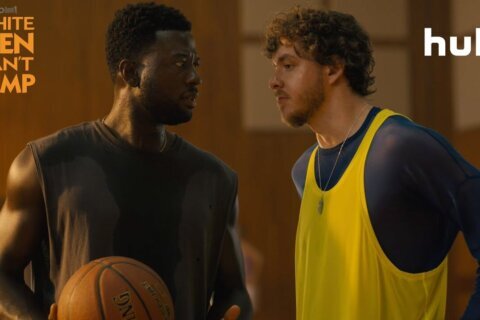Jason Fraley, WTOP film critic
WASHINGTON – Movies and music have a rich history together.
Monday marks the anniversary of a real trend-setter, “High Noon.”
Sixty years ago today, moviegoers heard Tex Ritter, father of the late John Ritter, sing the classic title song, “The Ballad of High Noon (Do Not Forsake Me),” the godfather of movie songs. Senses of Cinema says just 13 percent of American feature films used the device between 1950 and 1954, but the number grew to 22 percent over the next five years and reached 29 percent by the late ’60s.
The song tells the entire plot: Marshall Will Kane (Gary Cooper) wants his new wife (Grace Kelly) to forgive him for leaving their honeymoon early. He feels it’s his duty to defend his town against the Miller Gang, a band of outlaws waiting for the noon-train arrival of their vicious leader Frank Miller (Ian MacDonald), whom Kane locked up years ago.
Upon returning to town, Kane goes door to door, asking the town’s citizens (including Lloyd Bridges and Thomas Mitchell) to stand with him. One by one, the cowards turn him down, forcing Kane to face the gang alone in a memorable three versus one gunfight.
Screenwriter Carl Foreman had to write under a pseudonym, as a member of the Hollywood blacklist under ’50s McCarthyism. No matter, he churned out the Writers Guild of America’s No. 75 screenplay of all time and crafted one of history’s most memorable movie characters.
“Don’t try to be a hero,” Kelly says. “You don’t have to be. Not for me!”
“I’m not trying to be a hero,” Cooper replies. “If you think I like this you’re crazy!”
Such bravery and selflessness made Will Kane one the American Film Institute’s Top 5 Movie Heroes, ahead of Clarice Starling and Rocky Baloba.
“People don’t like men who come on telling you how good they are,” said John Sturges, director of “The Magnificent Seven” (1960).
“Whereas, if you are a brave man that says, ‘I’m not brave … I’d certainly prefer not to get into this, but I’m gonna have to get into this, but I’m not a hero,’ the audience will say, ‘Oh yes you are. You’re a hero.'”
Cooper won his second Oscar at age 51, much older than the 22-year-old Kelly, but he was beloved enough to pull it off, as he did with a 28-year-old Audrey Hepburn in “Love in the Afternoon” (1957). Kelly’s career was off to the races, landing her three big roles in the next two years — “Rear Window,” “Dial M for Murder” and “The Country Girl,” for which she won the Oscar.
“High Noon” director Fred Zinnemann had the genius idea of letting the film unfold in real time, using ticking clocks to count the minutes until the villains arrive on the noon train. Look for a young Sheb Wooley and Lee Van Cleef as members of the Miller Gang. You know the former as the singer of “Purple People Eater” and the latter from Sergio Leone’s “The Good, The Bad & The Ugly” (1966).
Zinnemann’s Best Picture follow-up, “From Here to Eternity” (1953), screens Monday at Screen on the Green. If you enjoy the experience, run out and pick up “High Noon” on Netflix and experience the AFI’s No. 25 Movie Song of All Time, No. 10 Film Score of All Time by Dimitri Tiomkin, and second greatest Western of all time, behind only “The Searchers” (1956).
★ ★ ★ ★
Read more from WTOP Film Critic Jason Fraley by clicking “Fraley on Film” under the “Living” tab above, following @JasonFraleyWTOP on Twitter, and checking out his blog, The Film Spectrum.
(Copyright 2012 by WTOP. All Rights Reserved.)








